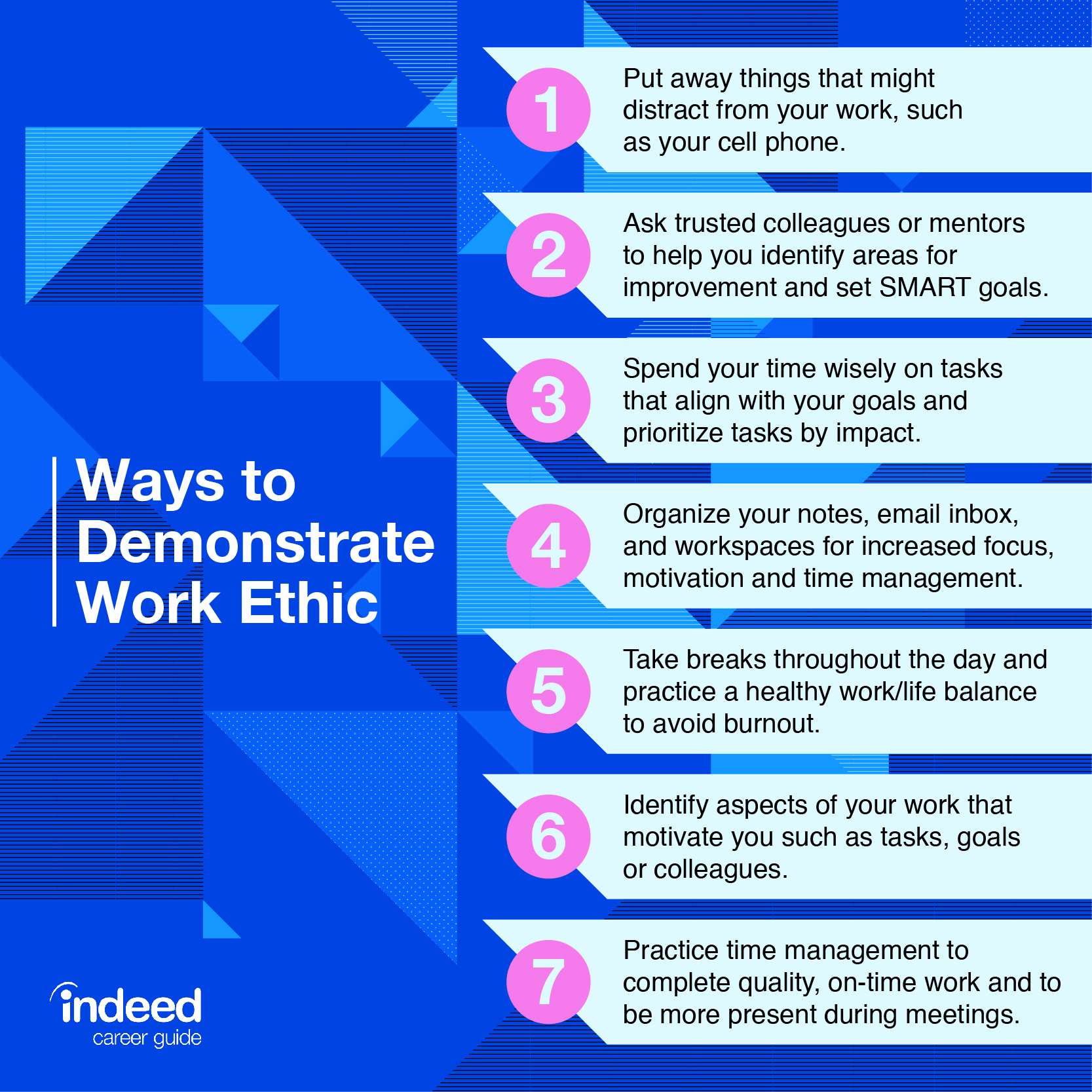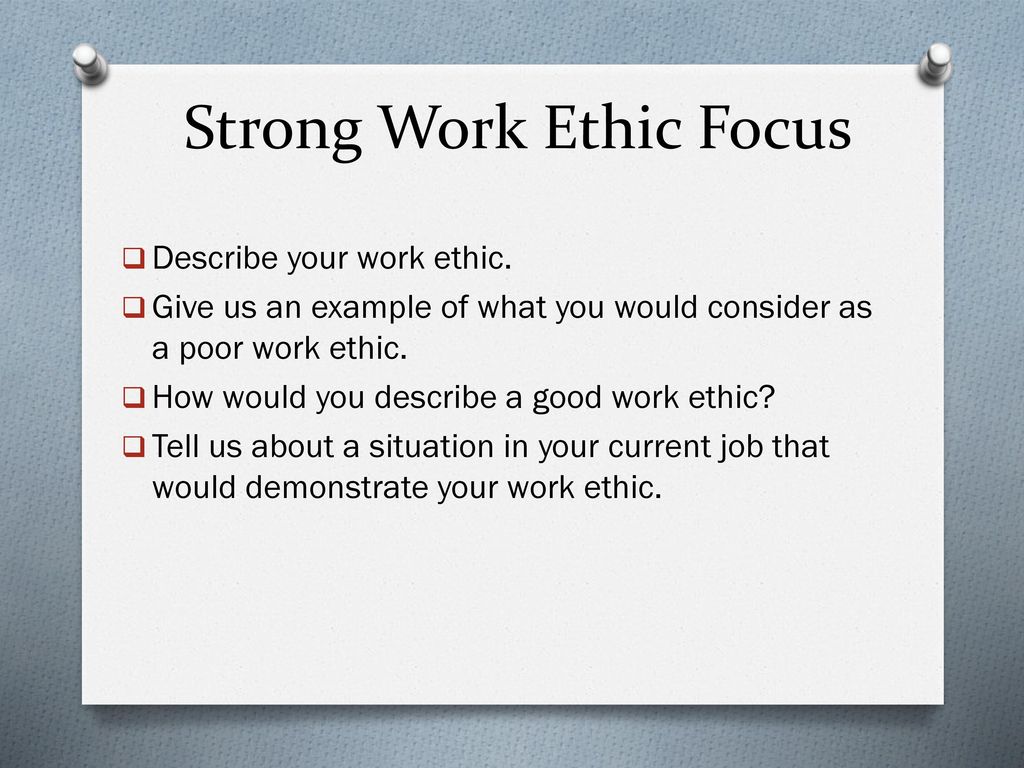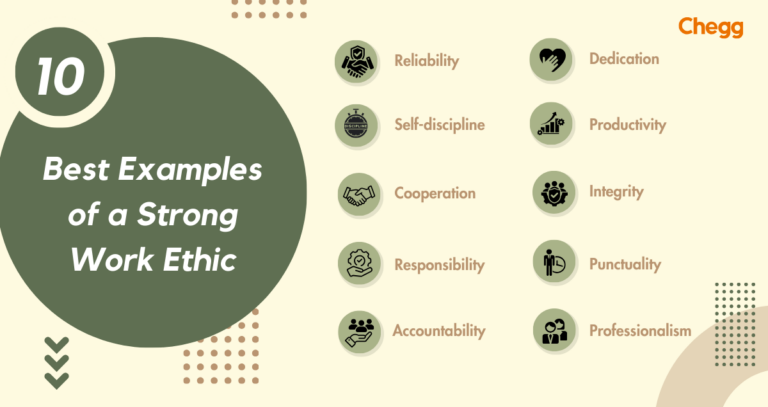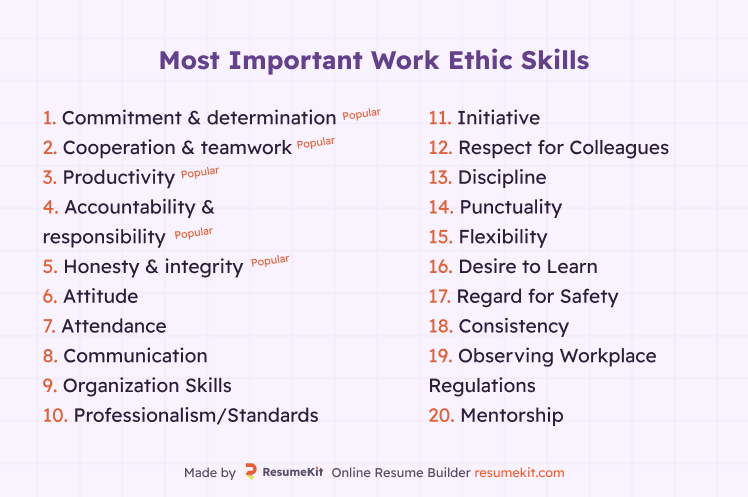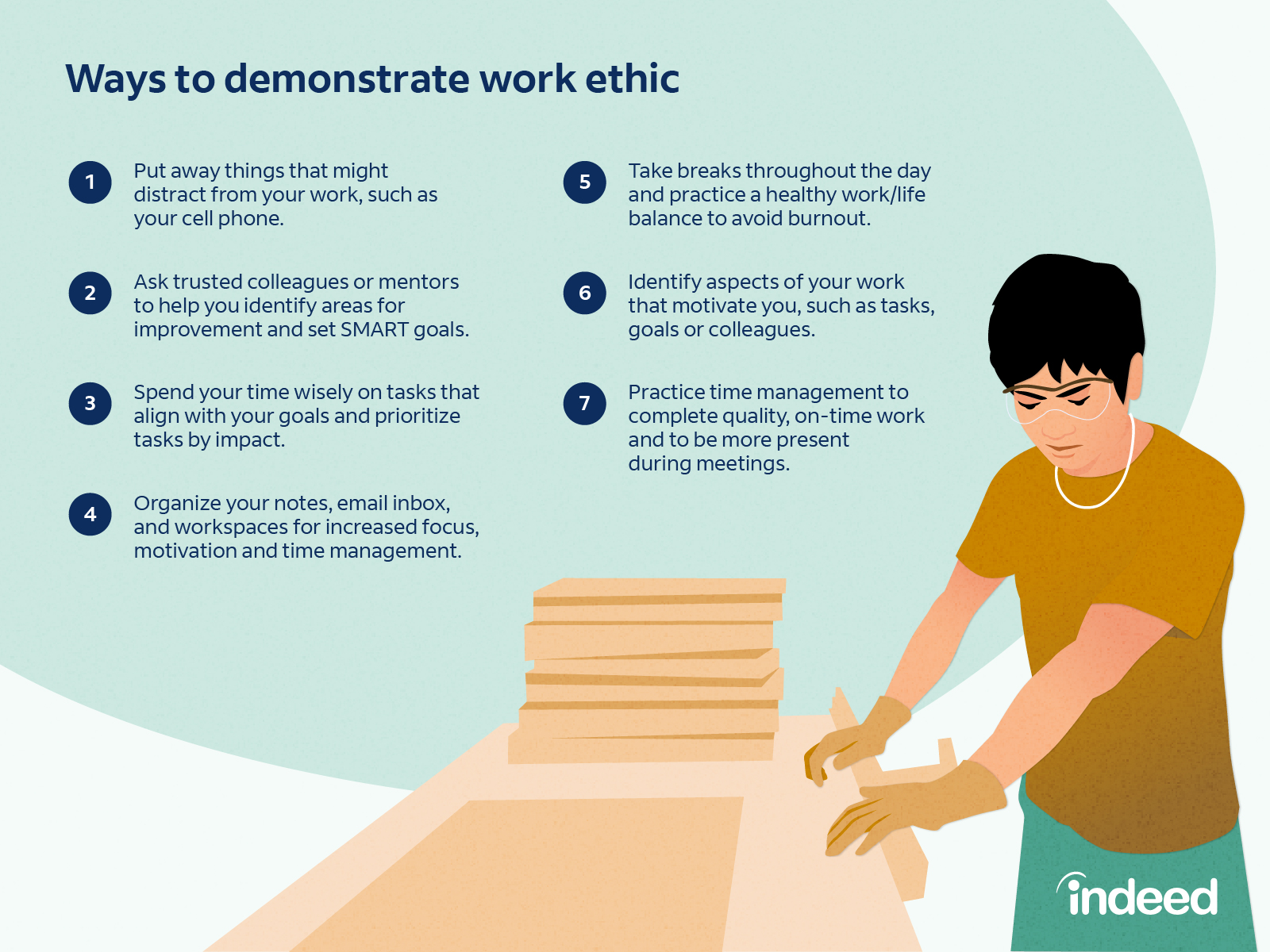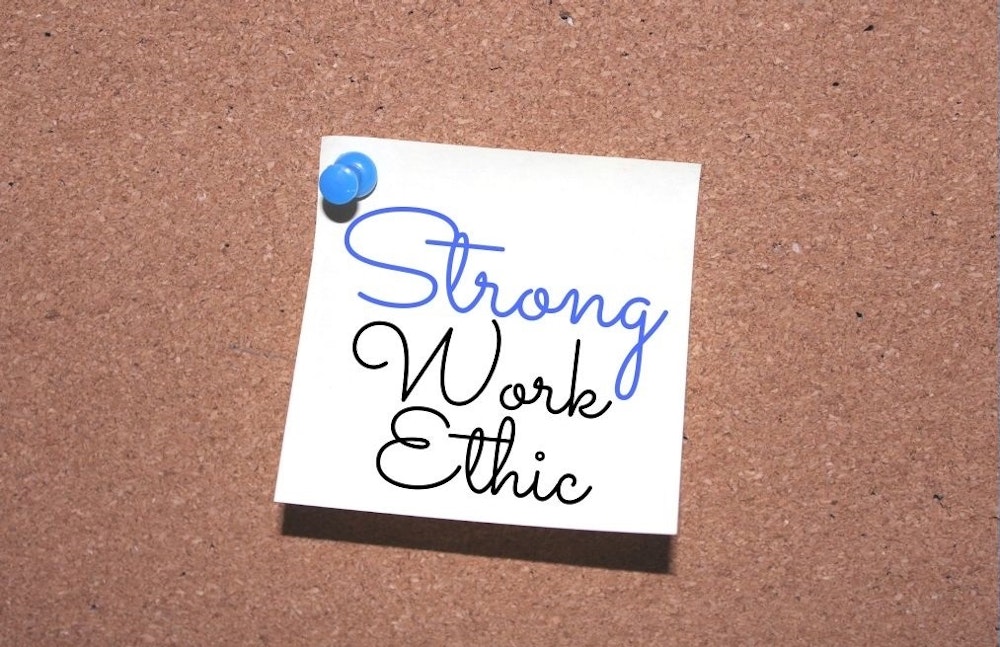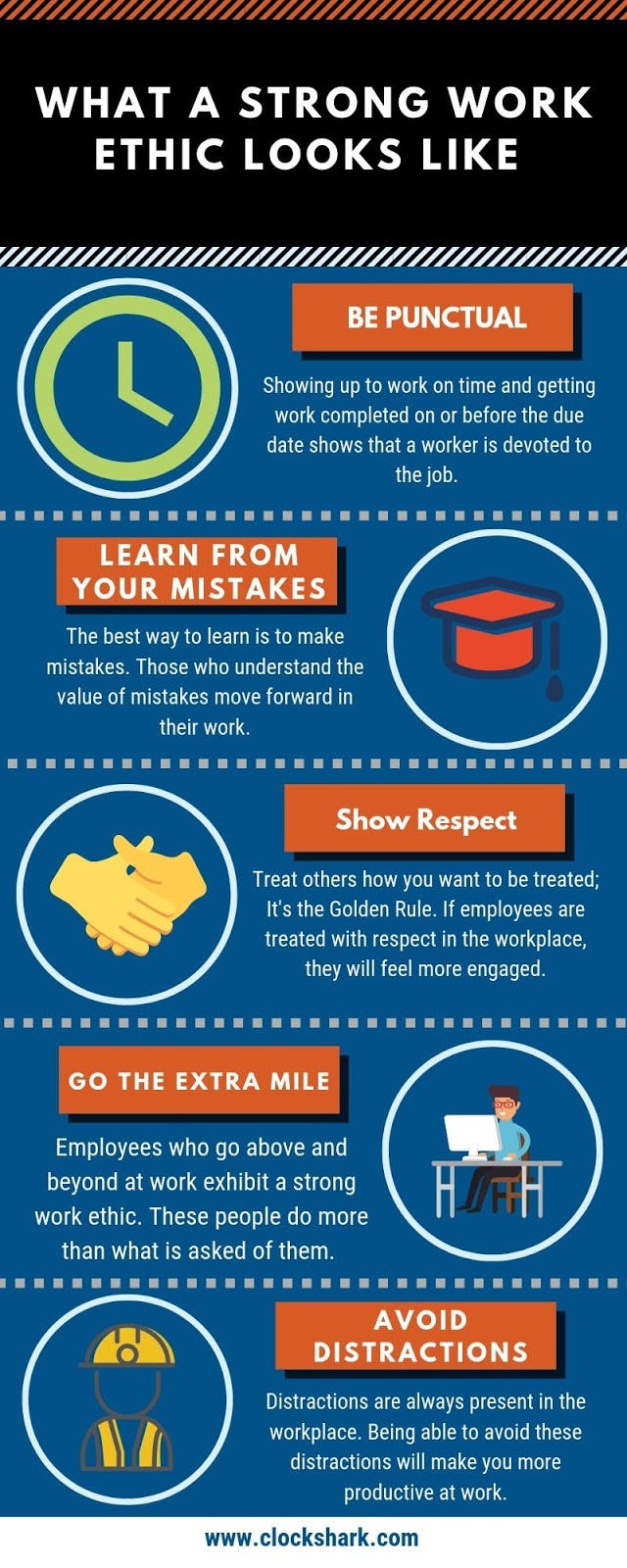How To Say You Have A Good Work Ethic

Imagine a bustling office, the air thick with the gentle hum of keyboards and the murmur of focused conversations. Sunlight streams through the windows, illuminating faces etched with concentration, a testament to the dedication that fuels the company's engine. But how do you, as an individual, articulate that dedication, that inherent drive to excel, without sounding boastful or cliché?
This article explores how to effectively communicate your strong work ethic during job interviews and performance reviews. It moves beyond simple statements like "I'm a hard worker" and delves into practical strategies for showcasing your commitment, responsibility, and passion in a way that resonates with employers.
Understanding the Essence of a Good Work Ethic
A good work ethic isn’t just about putting in long hours. It's about the quality of work, the ability to persevere through challenges, and a dedication to continuous improvement.
It's about owning your responsibilities and being accountable for your actions, demonstrating integrity and a proactive approach to problem-solving.
Moving Beyond Generic Statements
Avoid generic phrases like "I'm a hard worker" or "I'm very dedicated." These lack substance and can sound insincere.
Instead, focus on providing concrete examples of your past achievements and how you approached challenging situations.
The Power of Storytelling
The most effective way to demonstrate your work ethic is through storytelling. Share specific situations where you went above and beyond, showcasing your dedication and commitment to excellence.
Use the STAR method (Situation, Task, Action, Result) to structure your stories and provide context for your accomplishments.
For example, describe a time when you took on extra responsibilities to meet a critical deadline or proactively identified a problem and implemented a solution.
Highlighting Relevant Skills and Attributes
Identify the skills and attributes that contribute to a strong work ethic, such as time management, organization, problem-solving, and communication.
Provide examples of how you've utilized these skills in the past to achieve specific outcomes.
For instance, explain how you used your project management skills to successfully lead a team to complete a complex project on time and within budget.
Emphasizing Initiative and Proactiveness
Employers value employees who take initiative and are proactive in identifying and addressing problems. Sharing examples of your proactive approach can significantly enhance your image.
Demonstrate your ability to anticipate potential challenges and take steps to prevent them.
Highlight instances where you went beyond your assigned duties to improve processes or contribute to team success.
The Importance of Quantifiable Results
Whenever possible, quantify your accomplishments to demonstrate the impact of your work ethic. Instead of saying "I improved customer satisfaction," say "I improved customer satisfaction scores by 15%."
Use numbers, data, and metrics to showcase the tangible benefits of your contributions.
Show, Don't Just Tell
Ultimately, the best way to communicate your work ethic is to demonstrate it in your actions. Be punctual, prepared, and engaged in all your interactions.
Show enthusiasm for the role and a genuine desire to contribute to the team's success.
In the words of Thomas Edison, "Opportunity is missed by most people because it is dressed in overalls and looks like work." Embracing this sentiment and embodying a strong work ethic is not just about career advancement; it's about personal fulfillment and making a meaningful contribution to the world.


